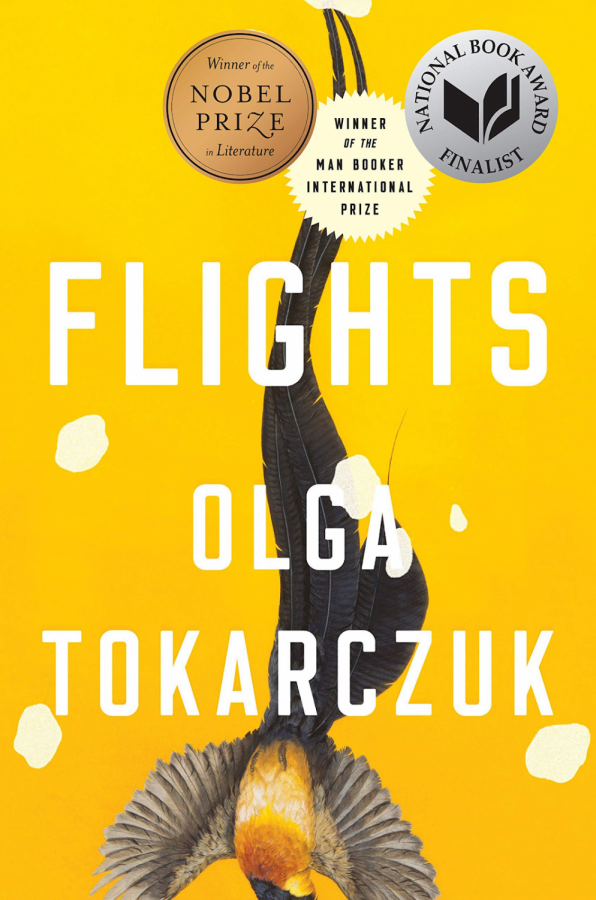A Novel Setting the Stagnant World in Motion: “Flights” by Olga Tokarczuk
What does it mean to travel when the world is standing still? In Nobel Prize-winning writer Olga Tokarczuk’s fragmentary novel “Flights,” she dissects the world’s movements through the journal of a young, Polish traveler. Tokarczuk discovers more than beautiful imagery and metaphor but produces a novel philosophically attuned to the world it portrays.
Originally published in Polish in 2007, “Flights” was a massive success in Europe and cemented Tokarczuk’s status as one of Poland’s most celebrated novelists, earning her the Nobel Prize in Literature in 2018. “Flights” was translated into English by the multitalented Jennifer Croft in 2017, awarding the novel the Man Booker Prize in 2018 and amassing praise from critics and book lovers alike.
Describing the novel is difficult since, in many ways, it is not a novel at all. Tokarczuk experiments with form in ways that allow the novel’s plot to encompass the smooth, natural flight of a bird and the violent, mechanical path of an airplane. Each chapter — if you can even call them chapters — is a different length, with some spanning pages and including detailed maps and others consisting of only a single sentence. Some are set in the Middle Ages and others in the present day, with a cast of floating characters whose identities are mysteriously woven together and distinctly disconnected.
While fragmentary and experimental, Tokarczuk is fascinated by the continuous, strategic pace at which the modern world is accelerating travel and life. She is enamored with things like Wikipedia and airplanes, writing that “people bring to Wikipedia everything they know. If the project succeeds, then this encyclopedia undergoing perpetual renewal will be the greatest wonder of the world.”
By situating Wikipedia among the greatest wonders of the world, Tokarczuk is also placing herself within this narrative. “Flights” is a novel that emulates Wikipedia; each reader will understand Tokarczuk’s purpose differently, and the fragmentary structure is reminiscent of diving into articles, clicking link after link until the reader spirals through information to a destination far from where they began.
Moreover, this beautiful extended metaphor of flight demonstrates how the “natural” is a social construct. Everything is connected somehow; evolution is ongoing. But like a Wikipedia search or a body in motion, the beginning is perpetually connected to the end.
In this, the journey between falls away, much like in the novel where the middle passages fall away from memory by the novel’s conclusion. In a way, Tokarczuk does this to prove one of her most poignant lines: “Description is akin to overuse — it destroys.” As if to testify against the traditional form of a novel and defend the structure of “Flights,” Tokarczuk proves that description in stories should bear meaning and avoid shallow mechanics of appearance.
Additionally, in discussion form, “Flights” is not an overly lengthy novel. However, it demands total attention from its readers, which — for a novel with messages about modernity, speed and information — is not attune to the racing society it delves to understand. This small critique is not meant to dull the novel’s shine but rather complicate its portrait of contemporary society.
Beautifully disorienting and complex, “Flights” is a novel meant to challenge our perception of modernity and antiquity. Tokarczuk’s talented prose grabs readers from the first page and does not release them until the novel’s conclusion, by which point she has gifted them a pair of wings to fly above the constructs that bog down their consciousness.
Olga Tokarczuk’s “Flights” is a fragmentary novel meant to disrupt and slow down contemporary consciousness, asking philosophical questions about what it means to be human.








































































































































































































